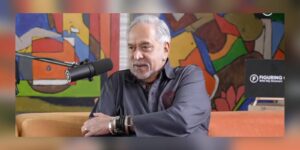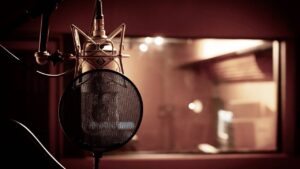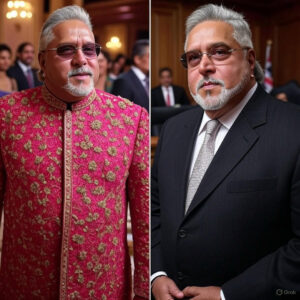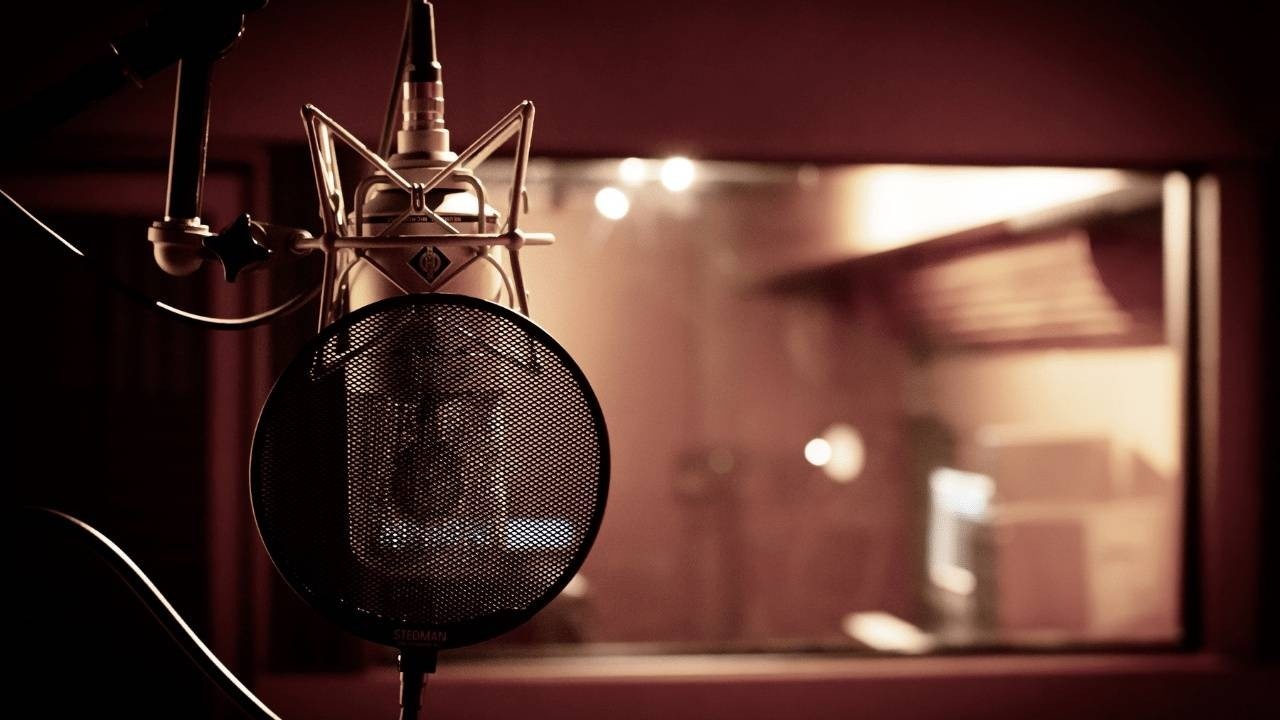The audiobook industry is booming, with over 130 million listeners in the U.S. alone in 2021 and a growing global appetite for audio content. Producing an audiobook, however, involves significant expenses, particularly when hiring recording artists, renting studios, and creating multilingual versions. But has AI narration “finished” this industry, as some claim? Not quite. While AI in audiobooks is revolutionizing production, human narrators and professional studios remain essential for high-quality, emotionally engaging content. This article explores the costs of audiobook production, the role of recording artists, multilingual demands, and how AI is reshaping the landscape, all while offering insights for authors and publishers looking to navigate this dynamic market.
Table of Contents
ToggleThe Role of Recording Artists in Audiobook Production
Recording artists are the heart of audiobook production, bringing stories to life with their voice acting skills. Professional narrators, often trained voice actors or authors, command fees ranging from $200 to $500 per finished hour (PFH), depending on experience. For a 50,000-word audiobook (roughly 6-8 hours), this translates to $1,200-$4,000 in narrator fees alone. Narrators must deliver clear pronunciation, stamina for long sessions, and the ability to perform distinct character voices, especially for fiction or multilingual projects. Platforms like ACX and Voices connect authors with narrators, many of whom specialize in multilingual audiobooks, catering to global audiences with native fluency or regional accents.
Studio Recording Expenses: Breaking Down the Costs
Studio recording expenses are a significant part of audiobook production costs. Professional studios use soundproof booths, high-quality microphones, pop filters, and software like Pro Tools or Audacity to ensure crystal-clear audio that meets platforms like Audible’s strict ACX standards. Renting a studio can cost $1,000-$2,000 for a full project, with additional fees for editing and mastering ($500-$1,500). For a typical 6-8 hour audiobook, total production costs often range from $2,000 to $5,000, excluding narrator fees. Multilingual audiobooks may incur higher costs due to translation services or specialized narrators fluent in languages like Spanish, Mandarin, or Hindi.
The Rise of AI Narration in Audiobooks

AI narration is transforming the audiobook industry by offering cost-effective alternatives to human narrators. Platforms like Audible and Flixier provide AI-generated voices in multiple languages, reducing production costs to under $1,000 for basic projects. AI is particularly appealing for self-published authors or those producing non-fiction and technical content, where emotional depth is less critical. However, AI struggles with nuanced performances, such as complex character voices or emotional shifts, which are vital for fiction or culturally specific multilingual audiobooks. Listeners often prefer human narrators for their authenticity, especially in genres like fantasy or memoirs.
Multilingual Audiobooks: Meeting Global Demand
The demand for multilingual audiobooks is surging as publishers aim to reach diverse audiences. Recording in different languages requires narrators with native fluency or accurate accents, adding complexity and cost. Translation services, pronunciation research, and additional studio time can increase expenses by 20-30%. For example, a narrator fluent in Arabic or Japanese may charge a premium for their expertise. AI tools can assist with translation and initial narration, but human narrators are often preferred for authenticity, ensuring cultural nuances are preserved in languages like Bengali or Russian.
Has AI “Finished” the Audiobook Industry?
Claims that AI narration has “finished” the audiobook industry are exaggerated. While AI reduces audiobook production costs and accelerates multilingual projects, human narrators remain in demand. The U.S. Bureau of Labor Statistics projects 20,400 annual openings for voice actors through 2033, reflecting stable demand. Human narrators excel in delivering emotional resonance and complex performances, which AI cannot fully replicate. Many producers adopt a hybrid approach, using AI for drafts or translations and humans for final recordings. This balance ensures quality while managing studio recording expenses.
Financial Considerations for Authors and Publishers
For authors and publishers, understanding audiobook production costs is crucial. Traditional production with human narrators and professional studios offers premium quality but comes with a higher price tag. AI narration provides a budget-friendly option, ideal for indie authors or low-budget projects. Multilingual audiobooks require careful budgeting due to translation and specialized narrator costs. Platforms like ACX offer royalty-sharing models, reducing upfront costs but splitting profits with narrators. Authors should weigh quality, audience expectations, and budget when deciding between human and AI narration.
The audiobook industry is thriving, driven by growing listener demand and technological advancements. Recording artists, studio recording expenses, and multilingual audiobooks are central to production, while AI narration offers cost-saving opportunities. Far from “finishing” the industry, AI complements human talent, enabling authors to reach global audiences efficiently. By understanding these costs and trends, authors and publishers can make informed decisions to produce high-quality audiobooks that captivate listeners worldwide.
FAQ Section
What are audiobook production costs?
Audiobook production costs include narrator fees ($200-$500 PFH), studio rental ($1,000-$2,000), and editing/mastering ($500-$1,500), totaling $2,000-$5,000 for a 6-8 hour audiobook.How much do recording artists charge for audiobooks?
Recording artists charge $200-$500 per finished hour, depending on experience. Celebrities or multilingual narrators may command higher rates.What are studio recording expenses for audiobooks?
Studio recording expenses cover soundproof booths, microphones, and software, typically costing $1,000-$2,000 for a full project, plus editing fees.How does AI narration impact audiobook production costs?
AI narration reduces costs to under $1,000 for basic projects, offering budget-friendly options for non-fiction or multilingual audiobooks.Why are multilingual audiobooks more expensive?
Multilingual audiobooks require translation, pronunciation research, and specialized narrators, increasing costs by 20-30% for languages like Spanish or Hindi.Can AI narration replace human recording artists?
AI narration is cost-effective but struggles with emotional depth and complex voices, so human recording artists remain essential for premium audiobooks.What platforms connect authors with recording artists?
Platforms like ACX and Voices.com connect authors with professional recording artists, including those skilled in multilingual audiobooks.How long does it take to produce an audiobook?
A 50,000-word audiobook (6-8 hours) takes 6-10 recording sessions, plus editing, with total production time varying based on complexity and language.Are multilingual audiobooks in demand?
Yes, multilingual audiobooks are growing in demand as publishers target global audiences, requiring narrators with native fluency or accurate accents.How can authors reduce audiobook production costs?
Authors can use AI narration, opt for royalty-sharing on ACX, or record in home studios to lower audiobook production costs while maintaining quality.

Jugaad on Two Wheels: The Hilarious Bike Parcel Hack in Karnataka
The Great Karnataka Bike Parcel Hack: A Jugaad Masterclass #RapidoParcel: In a creative yet controversial move, ride-hailing platform Rapido has found a way around Karnataka’s

Denmark’s Digital Sovereignty Revolution: Linux and LibreOffice Lead the Way
Introduction to Denmark’s Bold Move In June 2025, Denmark’s Ministry of Digital Affairs made headlines by embracing digital sovereignty, ditching Microsoft Windows and Office 365

🏏Sports as a Business Strategy: Insights from Vijay Mallya’s RCB Ownership
🧠 Sports as a Business Strategy (Tool) In modern business, few platforms offer better engagement and emotional connection than sports. From football clubs in Europe

🙏 Apologies in Leadership: Vijay Mallya Public Apology
🧠 Introduction: The Role of Apologies in Leadership In the corporate world, apologies aren’t signs of weakness—they’re strategic acts of leadership. When made with sincerity

Audiobook Production Costs: Navigating Recording Artists, Studio Expenses, and AI’s Impact
The audiobook industry is booming, with over 130 million listeners in the U.S. alone in 2021 and a growing global appetite for audio content. Producing

Media Trial of Vijay Mallya: How Public Perception Shaped Vijay Mallya’s Legacy
Introduction: Media’s Influence on Business Narratives In today’s hyper-connected world, media narratives can make or break a business reputation. For Vijay Mallya, once known as

